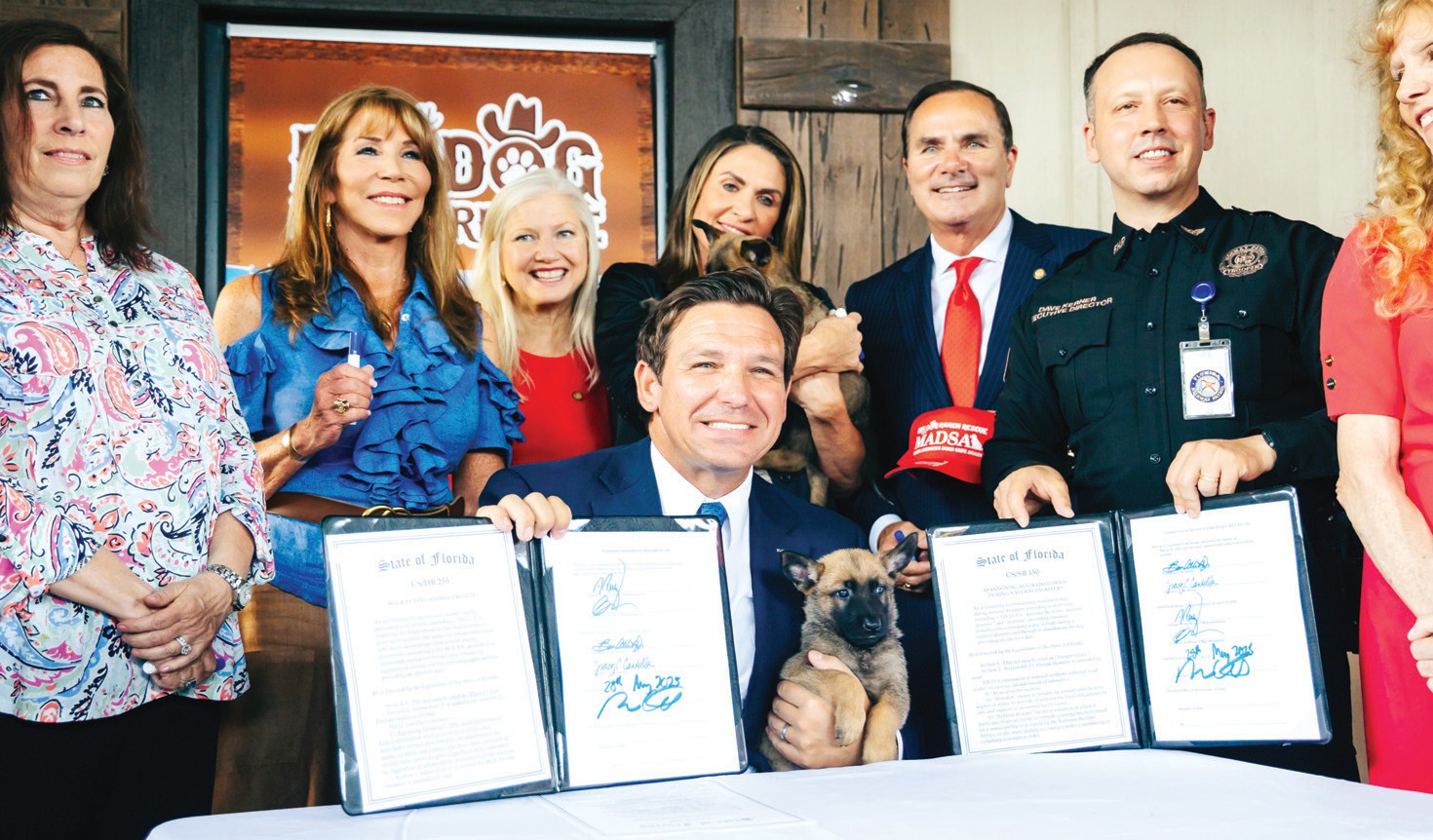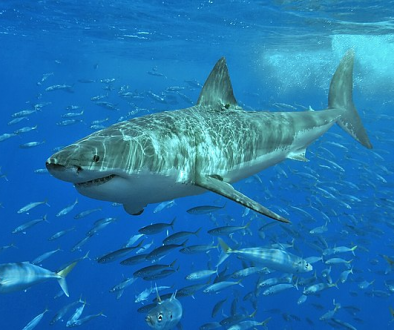Florida Takes Historic Stand Against Animal Cruelty with Trooper’s Law and Dexter’s Law

Florida has taken a significant step forward in animal protection with Governor Ron DeSantis signing two groundbreaking pieces of legislation on May 28, 2025. These laws, known as “Trooper’s Law” and “Dexter’s Law,” represent the most comprehensive animal protection measures in the state’s history and demonstrate Florida’s commitment to safeguarding our four-legged companions.
The Stories Behind the Laws
Both laws were named after dogs whose tragic stories galvanized public support for stronger animal protection measures. Trooper’s Law honors a bull terrier who was rescued from rising floodwaters during Hurricane Milton after being found chained and abandoned by Florida Highway Patrol officers. Dexter’s Law memorializes a shelter dog who was brutally killed in Pinellas County just days after being adopted from the Pinellas County Animal Services.
These heartbreaking cases highlighted critical gaps in Florida’s animal protection laws and spurred legislators to take decisive action.
Trooper’s Law: Protection During Natural Disasters
Trooper’s Law (Senate Bill 150) addresses a disturbing pattern of animal abandonment during natural disasters. The law makes it a third-degree felony to restrain and abandon a dog outdoors during a declared natural disaster or when mandatory or voluntary evacuation orders are in effect.
Key Provisions:
- Criminal Penalties: Up to five years in prison and $10,000 in fines for violators
- Comprehensive Coverage: Applies during both declared natural disasters and evacuation orders
- Additional Protections: Codifies penalties for failing to provide confined animals with sufficient food, water, and exercise
- Effective Date: October 1, 2025
This legislation recognizes that pets are family members who deserve protection during emergencies, not disposable property to be abandoned when convenience dictates.
Dexter’s Law: Strengthening Animal Cruelty Penalties
Dexter’s Law (House Bill 255) takes a multi-pronged approach to combating animal cruelty through enhanced penalties and improved tracking systems.
Enhanced Sentencing:
- Sentencing Multiplier: Applies a 1.25 multiplier for aggravated animal cruelty cases
- Scoring Impact: Aggravated animal cruelty offenses now score 35 points under the Criminal Punishment Code, potentially increasing prison sentences
- Targeted Application: Specifically applies to cases involving knowing and intentional torture or torment resulting in injury, mutilation, or death
Florida’s First Animal Abuse Database:
One of the most significant aspects of Dexter’s Law is the creation of Florida’s first-ever animal abuse database. This public registry will:
- Be maintained by the Florida Department of Law Enforcement
- List individuals convicted of animal cruelty offenses
- Be accessible to shelters and the general public
- Help prevent repeat offenses by making conviction history transparent
- Be fully operational by January 1, 2026
Effective Dates:
- Enhanced Penalties: July 1, 2025
- Database Implementation: January 1, 2026
Impact on Florida Communities
These laws address a critical public safety issue. Research consistently shows strong correlations between animal cruelty and violence against humans. By creating stronger deterrents and tracking mechanisms, Florida is taking a proactive approach to community safety.
Governor DeSantis emphasized the importance of these measures during the signing ceremony, noting that while most people care for their pets properly, there are individuals who “have a fetish of being cruel to animals” and “can do a lot of damage.” The new laws ensure these individuals are held accountable and tracked to prevent future abuse.
Support from Animal Welfare Organizations
The legislation has received widespread support from animal welfare organizations across Florida and nationally. These groups have long advocated for stronger animal protection measures and view these laws as model legislation that other states should consider adopting.
The database component is particularly significant, as it mirrors successful registries used for other types of offenses and will help shelters make informed decisions about potential adopters while protecting vulnerable animals from repeat offenders.
Looking Forward
These laws represent more than just legal changes—they reflect Florida’s evolving understanding of the human-animal bond and the importance of protecting vulnerable creatures who depend on us for their wellbeing. As these measures take effect, Florida sets a precedent for other states to follow in strengthening animal protection laws.
The implementation of these laws will require coordination between multiple agencies, including the Florida Department of Law Enforcement, animal control agencies, and the court system. However, the comprehensive nature of both laws ensures that Florida now has the tools necessary to effectively prosecute animal cruelty cases and protect animals during emergencies.
For Florida residents, these laws serve as both a deterrent and a reminder of our collective responsibility to protect animals. Whether during natural disasters or in everyday situations, these measures ensure that animal welfare remains a priority in the Sunshine State.
The signing of Trooper’s Law and Dexter’s Law marks a historic moment for animal protection in Florida, demonstrating that the state is committed to being a leader in animal welfare legislation. As these laws take effect, they will undoubtedly save lives and prevent countless acts of cruelty, honoring the memory of the animals for whom they were named.
Elaborado por Fundación Animal Ladyhawk



